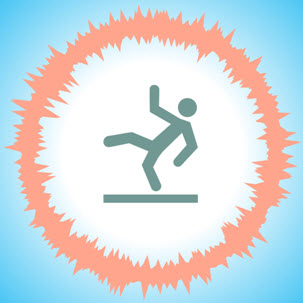Nationwide, serious falls are the third leading type of injury-related death. Fatal falls are especially common among older adults, many of whom have pre-existing medical conditions. In fact, according to some estimates, by 2030, serious falls may kill seven older people every hour.
Legally, these victims may be entitled to substantial compensation. This compensation is available even if the victim had a pre-existing condition. Under Florida law, the defendant is fully liable for all damages which are at least somewhat related to the negligent event.
This compensation generally includes money for economic losses, such as medical bills, as well as noneconomic losses, such as pain and suffering.
Legal Responsibility in Slip and Fall Claims
Like many other jurisdictions, the Sunshine State divides fall victims into three categories, usually depending on the relationship between the victim and the property owner. The duty varies according to the type of relationship, as follows:
- Invitee: These individuals respond to an express or implied invitation, and their presence provides an economic or noneconomic benefit to the landowner. Because of the closeness between victim and owner, if the victim was an invitee, the owner owes a duty of reasonable care. That’s one of the highest duties in Florida.
- Licensee: Some people have permission to be on the land, but they do not confer a benefit on the owner. Examples of licensees include children who cut across commercial parking lots as they walk home from school. Since the relationship is not as close, the owner only has a duty to warn about any latent (hidden) defects, such as a loose handrail.
- Trespasser: If the victim had no invitation and conferred no benefit, the owner generally owes no duty. Stories of injured burglars who sue homeowners are usually urban myths. There are some exceptions for child trespassers, since these victims deserve additional protection.
The duty of care includes more than keeping the premises safe. This duty also includes a responsibility to frequently inspect the premises to ensure they remain safe. Furthermore, if the victim was an invitee, the owner may be liable for certain third-party injuries, such as assault injuries.
Establishing Knowledge in Hillsborough County
Theoretical legal responsibility is not enough. Victim/plaintiffs must also prove that the owner knew about the hazardous condition and failed to correct it. Only then does liability attach.
Sometimes, a Brandon personal injury attorney uncovers direct evidence of actual knowledge. Items like restroom cleaning reports and written repair estimates usually emerge during the discovery period. That’s assuming a lawyer knows the right questions to ask and the right documents to request.
If such direct evidence is unavailable, victim/plaintiffs may use circumstantial evidence to establish constructive knowledge (should have known). To evaluate such proofs, most Hillsborough County courts use the time/notice rule.
Think about a leaf of lettuce on a grocery store floor. If the leaf was wilted, it had probably been there for some time. Therefore, constructive knowledge usually attaches. However, if the leaf was crisp, it had probably just fallen on the floor. So, constructive knowledge may not attach, unless the victim/plaintiff could produce additional evidence, like surveillance footage which shows an employee near the lettuce leaf.
On a related note, the duty of care also includes using safety measures, like non-slip mats in produce sections, which help prevent falls.
Contact Aggressive Attorneys
Fall victims may be entitled to substantial compensation. For a free consultation with an experienced Brandon slip and fall lawyer, contact Reed & Reed, Attorneys at Law. We have four area offices (St. Petersburg, Lakeland, Tampa, and Clearwater).
Resource:
nsc.org/work-safety/safety-topics/slips-trips-falls

